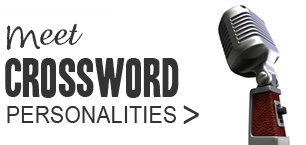
Going by the drift of a recent discussion on the Facebook group Cryptic Crossword Society, this device seems to be a universal hackle-raiser. Most crossworders object to A = I on grounds of indirection. A = one = I is not a straight substitution: A = I needs to be translated via 'one' for the equation to hold. We would not accept 'book' substituted with 'coolness' in a clue with the logic that book = reserve and reserve = coolness. Why then would we accept A = I because A = one and one = I?
Actually, there is another dictionary definition that links A to I without any intermediate translation. Chambers lists 'A' as a dialect form of the pronoun 'I'.
This meaning of 'A' may be obscure but if other arcane stuff like SA = IT is considered fair game in crosswords, why the problem with A = I?
Well, that's my take on it but it does not fly with Peter Biddlecombe, editor of the Sunday Times crossword. He says:
A is a "dialect form of I" in Chambers - that would allow something like ("a locally" = I) in puzzles using Chambers as a reference (barred grid ones, mainly). But this meaning of A is not shown in Collins English Dictionary or the Oxford Dictionary of English. That would disallow it for Sunday Times puzzles, and most other broadsheet cryptics.
As you say, A and I both mean "one". However, it's hard to think of an example where you could replace one with the other and still have a natural-sounding sentence - that's my version of the indirection point. On that basis, I don't think I would allow it.
That explains why I don't recall seeing A = I in the Times or Sunday Times, though examples abound in the Guardian crossword.
What do you think?
Solve These
Solve these clues in which 'A' means 'I'.
Guardian 25404 (Boatman): Give a wide berth, taking a berth with a fish (9) S______N
Guardian 25796 (Araucaria): Piece of chalk for a pupil, a destroyer (6) A__A__
Wordview Mint (Vinod Raman): A criminal nursed and offered protection! (7)
Related Posts:
- 3-Segment Container Clues: {A in (B+C)}
- The Notorious A on B Device
- How to Interpret Punctuation in Cryptic Clues
If you wish to keep track of further articles on Crossword Unclued, you can subscribe to it in a reader via RSS Feed. You can also subscribe by email and have articles delivered to your inbox, or follow me on twitter to get notified of new links.









 Follow on Twitter
Follow on Twitter Join us on Facebook
Join us on Facebook Get RSS
Get RSS

17 comments
I used to think that when one such as Prince Charles said "one is delighted" he actually meant "I am delighted". One was thus apparently a term current royals use instead of the crass commoners' I just as earlier generations of the regal line used we for the imperial first person singular.
Perhaps more relevantly, using some sort of algebraic logic, one can be substituted for a in any normal English phrase without changing the logical sense. (Of course I am not dealing here with style).
I no longer use this convention in my own puzzles but I did, with little regret and no apologies, until recently. It was simply one of those tricks of the trade I seemed to have learnt at my mother' knee. I now see its unkosherness though.
Is A the perpendicular pronoun?
A am confused !
Guardian 25796 (Araucaria): Piece of chalk for a pupil, a destroyer (6) A__A__
Ans: ALKALI (A+L+KALI)
Wordview Mint (Vinod Raman): A criminal nursed and offered protection! (7)
Ans: INSURED (I+NURSED*)
{SHU(BUNK)(1)N}
{[-ch]ALK}{A}{L}{1}
{1}{NSURED*}
Wordview Mint (Vinod Raman): A criminal nursed and offered protection! (7) I + (NSURED)*
I think A = I is fair enough, could be because I am used to it. Never knew the dialect meaning, thanks for that!
With cryptic devices, familiarity breeds acceptance I suppose. Otherwise there is no reason constructs like 'indeed' are admitted as part of the game while dictionary backed equivalences like A=I generate argument.
Having said that, I personally still don't like it. I know I won't be using it, but will stop feeling strongly when someone else does.
If we accept A = I, I'm afraid it may be stretched to An = I. How?
A = One = I
An = One = I (or) In ?
To continue my earlier post, I split the word AN into 2 distinct words:
AN = A + N (= a short form of 'and') = I + N = IN
N is not an abbreviation but a word in its own right., though informal. Example: 'Fun n frolic'. If setters can use a dialect 'I', they may as well use an informal 'n' for 'and'.
Is it acceptable on the analogy of A = I ?
An = 1 has ben used very recently in THC. I don't like either A or AN = 1.
@obel: The royal style - that's an interesting way of looking at it!
@Lakshmi, @Venkatesh: Good answers, and I'm impressed that you cracked SHUBUNKIN.
@Krishna M, @Bhavan: You're right, it surely has to do with familiarity. As with 'A = I', I don't mind 'indeed' either when I'm solving since I can easily understand it, though it does not hold up to objective scrutiny.
@Ramanan: Whoa, combining the already dodgy A = I with elision? That would cause quite a stir if put into a published crossword.
@benbush pointed out on twitter an alternate annotation for ALKALI:
Guardian 25796 (Araucaria): Piece of chalk for a pupil, a destroyer (6) ALKALI
A L (pupil) KALI (a destroyer - the Goddess Kali); definition: piece of chalk
I wasn't convinced about this parsing at first (chalk isn't a very good example of an alkali, and why 'piece of'?) but looking at similar comments on fifteensquared, perhaps 'piece of chalk' = ALK = abbreviation for 'alkali' is meant as a secondary cryptic definition. As benbush says, "that's Araucaria for you ;)"
The "Alkali" clue doesn't use A=I does it unless I'm missing something.
I agree 100% with Peter Biddlecombe on this. Occasionally there's a debate about using "one" to mean "a" or "a" to mean "one". But A=I seems a step too far. The Boatman example in particular seems completely unfair, especially for such an obscure word, as "one" would not only be more accurate but might make a better clue anyway
RR
Yes it does, A piece of the word 'chalk' gives the 'alk', followed by the 'a', then an 'l' for 'pupil' and finally, the 'i' from the last 'a' in the clue. Put together to make 'alkali'
On reflection I think this clue might be an ill-fated attempt at one that reads two different ways. "Piece of chalk" is a highly dubious definition for ALKALI, admittedly, but no more dubious than the alternative parsing.
RR
Another example of the use of A, An : 1, from The Statesman's CW syndicated from The Independent of UK:
Finished with love finally one turned up in Italian city (6) o VER O NA<-
One Alaskan Catholic back in Italian city (7) CR EMON A <-
Thanks Raghunath. Those examples equate "one" with A/AN, which doesn't have the indirection of equating "I" with A/AN.
Sunday Times too allows "one" in a clue to stand for A/AN/I, but not "I" for A/AN. The Times UK is probably stricter in letting "one" indicate only I (or UN) [Ref: How To Master The Times Crossword].
Post a Comment